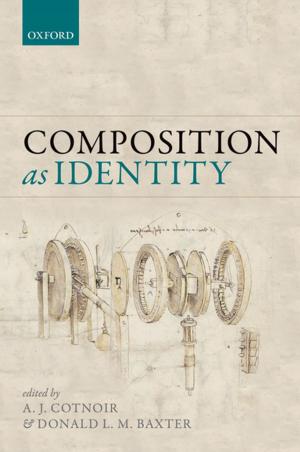Signatures of the Artist
The Vital Imperfections That Make Our Universe Habitable
Nonfiction, Science & Nature, Science, Physics, Cosmology, Astronomy| Author: | Steven E. Vigdor | ISBN: | 9780192546777 |
| Publisher: | OUP Oxford | Publication: | March 9, 2018 |
| Imprint: | OUP Oxford | Language: | English |
| Author: | Steven E. Vigdor |
| ISBN: | 9780192546777 |
| Publisher: | OUP Oxford |
| Publication: | March 9, 2018 |
| Imprint: | OUP Oxford |
| Language: | English |
How does the scientific enterprise really work to illuminate the origins of life and the universe itself? The quest to understand our universe, how it may have originated and evolved, and especially the conditions that allow it to support the existence of life forms, has been a central theme in religion for millennia and in science for centuries. In the past half-century, in particular, enormous progress in particle and nuclear physics and cosmology has clarified the essential role of imperfections - deviations from perfect symmetry or homogeneity or predictability - in establishing conditions that allow for structure in the universe that can support the development of life. Many of these deviations are tiny and seem mysteriously fine-tuned to allow for life. The goal of this book is to review the recent and ongoing scientific research exploring these imperfections, in a broad-ranging, non-mathematical approach with an emphasis on the intricate tapestry of elegant experiments that bear on the conditions for habitability in our universe. This book makes clear what we know and how we know it, as distinct from what we speculate and how we might test it. At the same time, it attempts to convey a sense of wonderment at the tuning of these imperfections and of the rapid rate at which the boundary between knowledge and speculation is currently shifting.
How does the scientific enterprise really work to illuminate the origins of life and the universe itself? The quest to understand our universe, how it may have originated and evolved, and especially the conditions that allow it to support the existence of life forms, has been a central theme in religion for millennia and in science for centuries. In the past half-century, in particular, enormous progress in particle and nuclear physics and cosmology has clarified the essential role of imperfections - deviations from perfect symmetry or homogeneity or predictability - in establishing conditions that allow for structure in the universe that can support the development of life. Many of these deviations are tiny and seem mysteriously fine-tuned to allow for life. The goal of this book is to review the recent and ongoing scientific research exploring these imperfections, in a broad-ranging, non-mathematical approach with an emphasis on the intricate tapestry of elegant experiments that bear on the conditions for habitability in our universe. This book makes clear what we know and how we know it, as distinct from what we speculate and how we might test it. At the same time, it attempts to convey a sense of wonderment at the tuning of these imperfections and of the rapid rate at which the boundary between knowledge and speculation is currently shifting.















